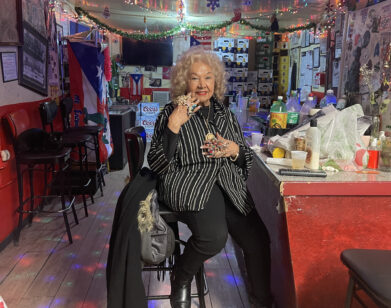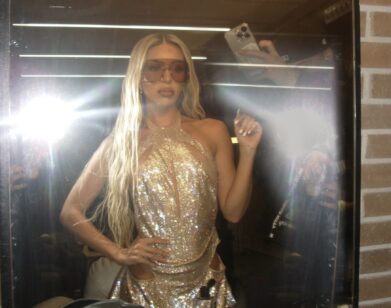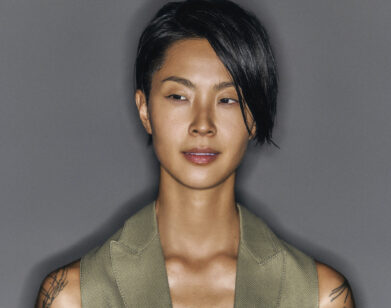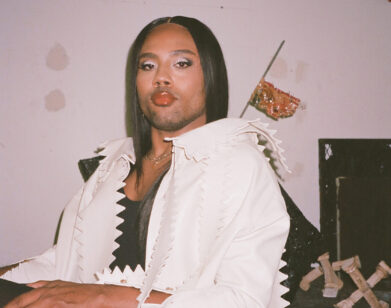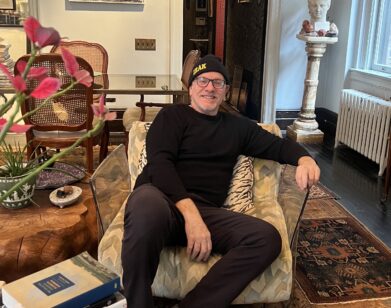benito
Bad Bunny Takes Benicio Del Toro Into His Private World
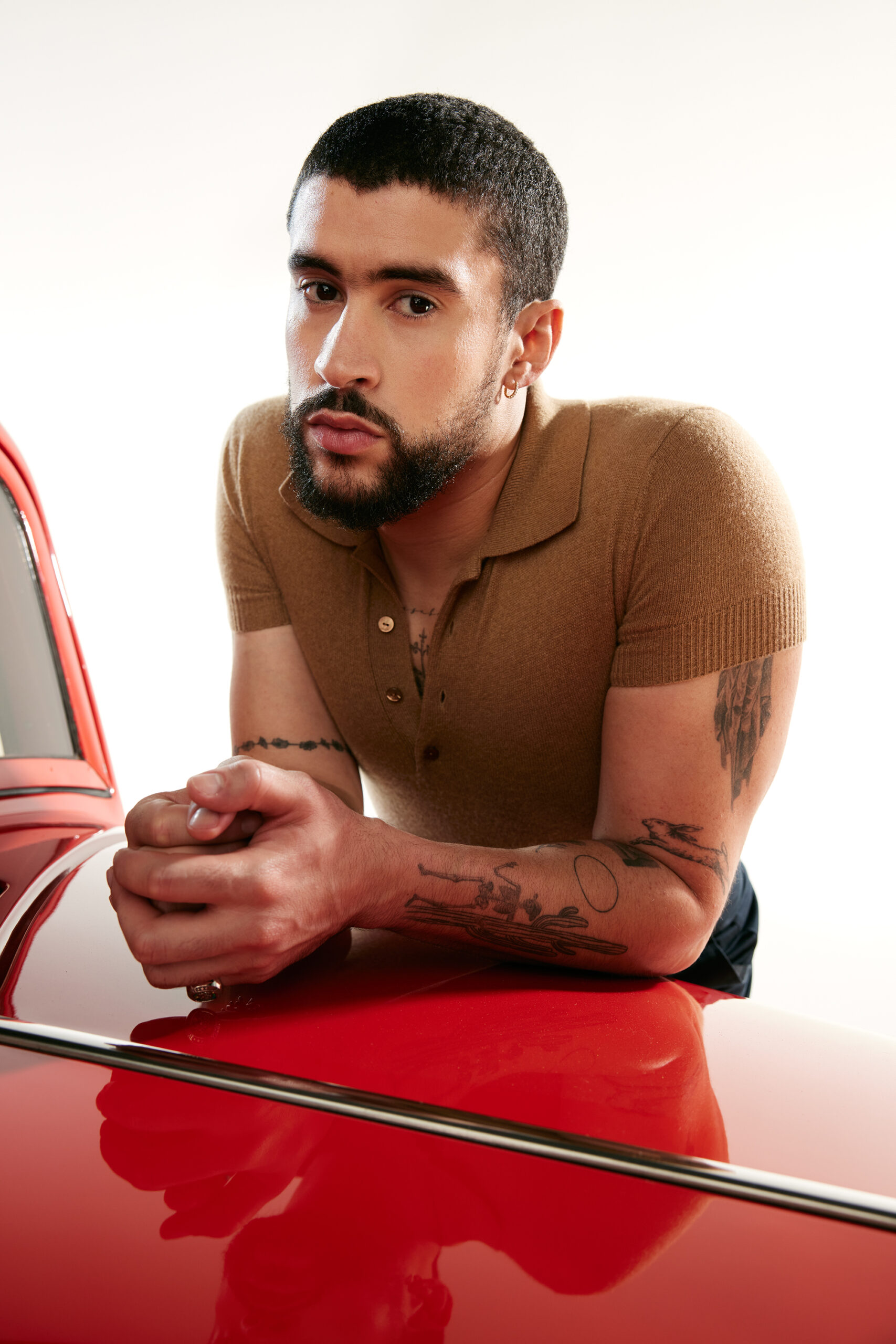
Bad Bunny wears Shirt Loewe. Earrings (worn throughout) Benito’s own. Bracelet Tiffany & Co. Ring Maple.
Bad Bunny cannot be stopped. Since his 2018 debut studio album, X 100pre, the Puerto Rican megastar has been putting out music at a radical clip, stockpiling fans and streams on his way to world domination. Over five albums, he has proven himself a master at colliding reggaeton rhythms from back home with the trap flows of the modern pop landscape, without compromising identity or culture or self. And, he’s not even 30 yet. The man born Benito Antonio Martinez Ocasio has a seemingly preternatural need to just make shit. But where does that need come from? As fellow islander Benicio Del Toro finds out, he does it for the people.
———
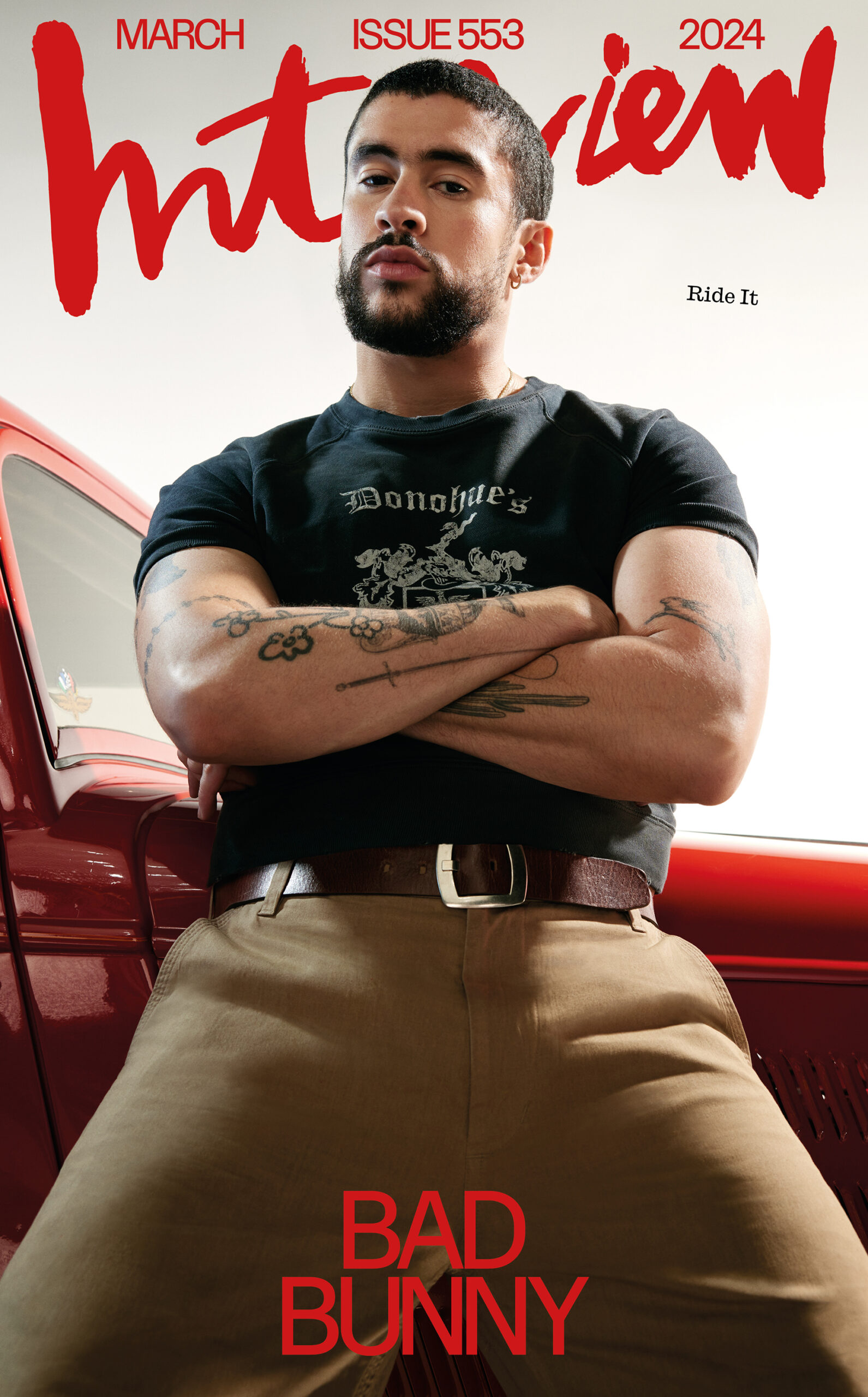
T-shirt, Pants, and Shoes Coach. Bracelet David Yurman. Ring Maple. Vintage Belt Palace Costume.
THURSDAY 5 P.M. JAN 4, 2024 SAN JUAN, PR
BAD BUNNY: I’m trying to turn on the camera but I don’t know why it won’t let me.
BENICIO DEL TORO: Ghost!
BAD BUNNY: Dude, I don’t understand this technology shit.
DEL TORO: Me too. I have people who help me with that.
BAD BUNNY: Usually I have people, but today I’m dealing with it solo. I’m trying to put the camera on and damn!
DEL TORO: [Laughs] No problem. You’re going to miss out on the show I was going to give you. I was going to audition for one of your videos.
BAD BUNNY: No, don’t tell me that!
DEL TORO: [Laughs] How are you?
BAD BUNNY: I’m doing well, thank god. I just got to Puerto Rico today.
DEL TORO: You’re in Puerto Rico? Do you spend a lot of time there?
BAD BUNNY: I try to come as much as possible. You could say I spend a lot of time here. I moved to L.A. at the beginning of 2023 to see if I’d like it, but before that, I’d always lived here and I’ve still been traveling back and forth. I’m here for the holidays to spend time with family.
DEL TORO: Nice. I saw you at that game where LeBron broke Kareem’s record.
BAD BUNNY: You were there?
DEL TORO: No, I saw it on TV.
BAD BUNNY: Ahhh.
DEL TORO: You’re a big basketball fan, huh?
BAD BUNNY: Yeah. I’m a fan of sports in general. It’s basketball, baseball, boxing, like any Puerto Rican.
DEL TORO: Yes.
BAD BUNNY: And in L.A., since I’m a Lakers fan, I’ve taken advantage of that.
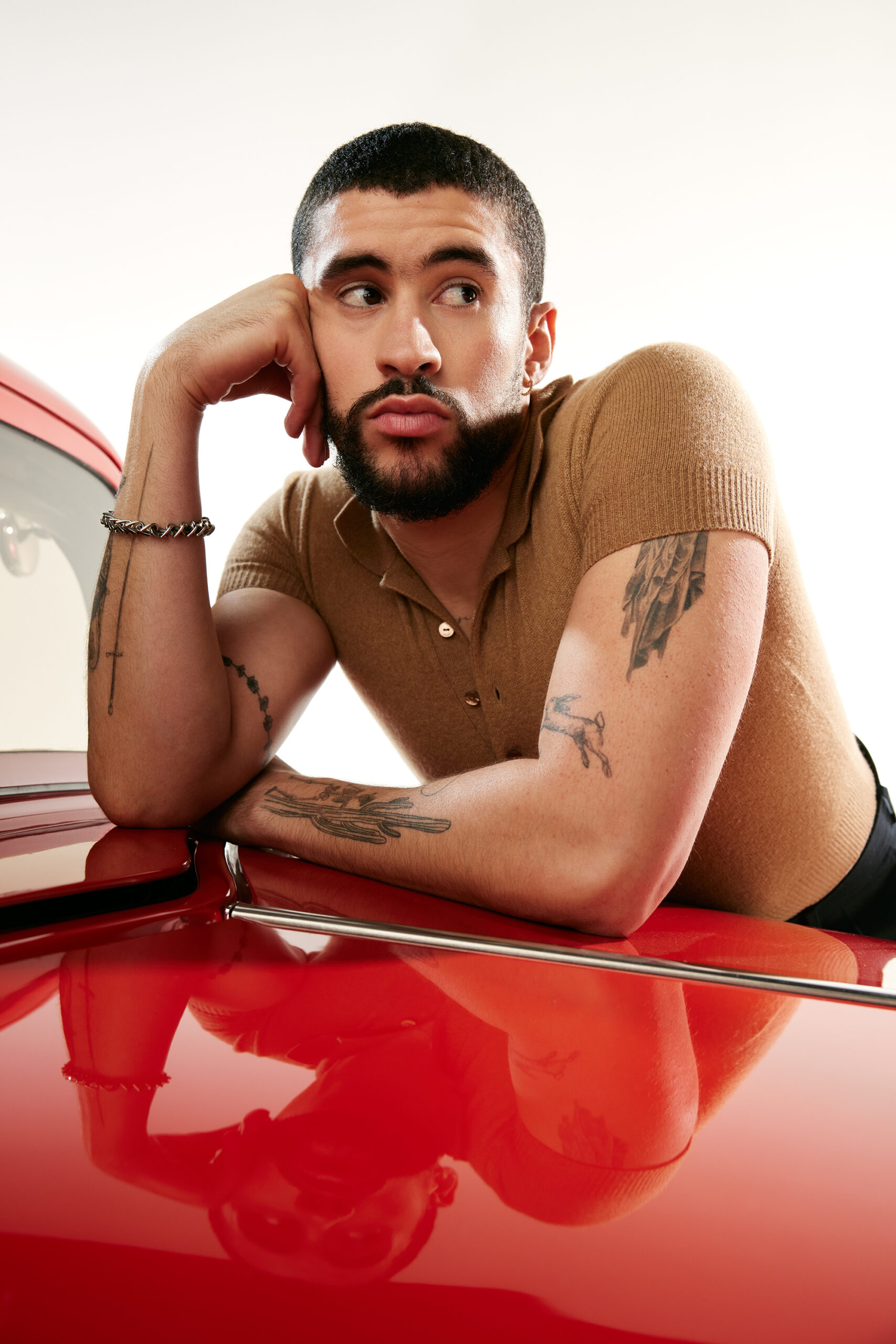
Shirt Loewe. Bracelet Tiffany & Co. Ring Maple.
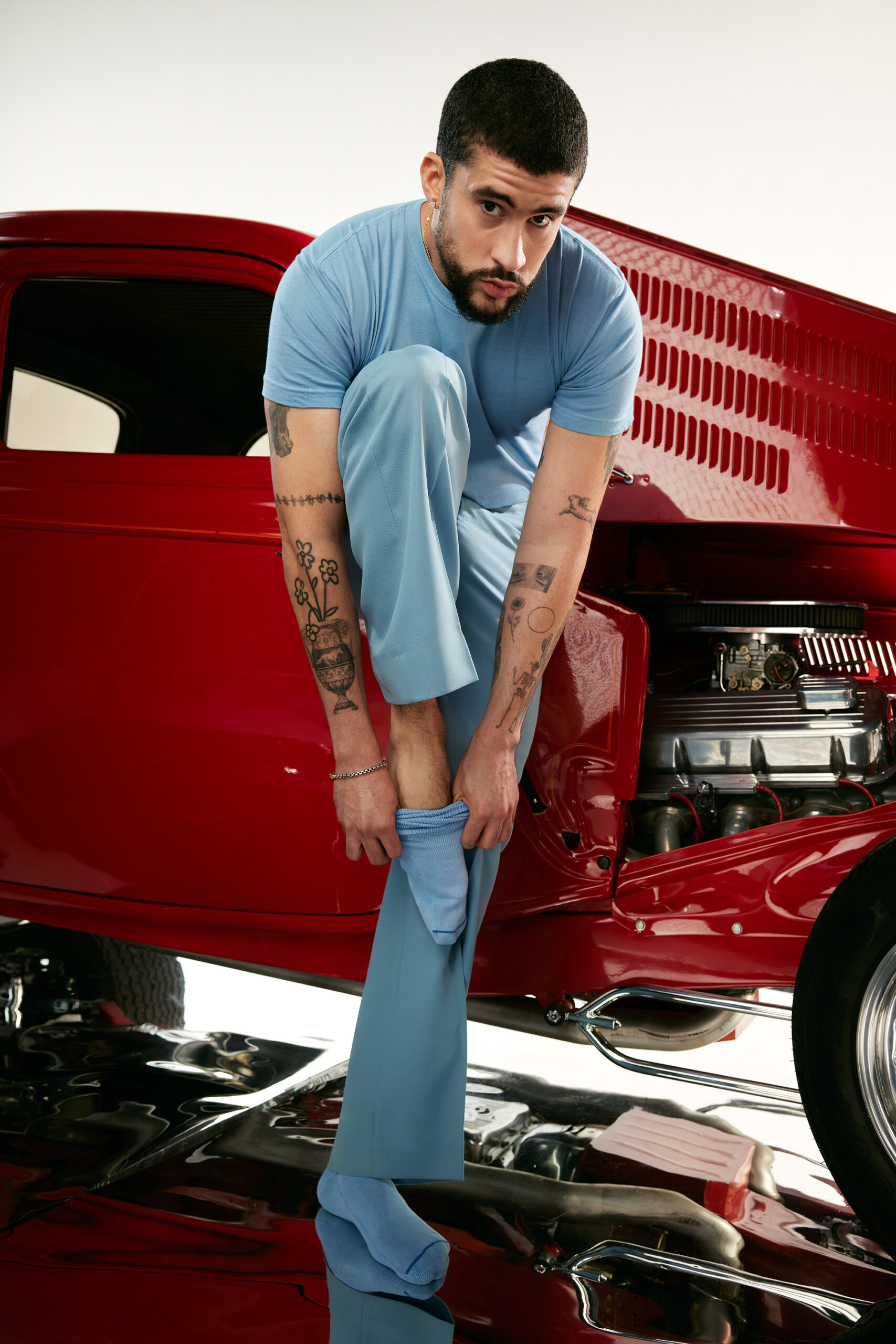
Custom-Dyed Shirt and Socks Los Angeles Apparel. Vintage Pants Palace Costume. Necklace (worn throughout) Benito’s Own. Bracelet David Yurman.
DEL TORO: Nice. I noticed you have a connection to sports, since you included [Francisco] Lindor, who plays for the Mets, in one of your videos.
BAD BUNNY: He’s in the video for “Yo Visto Así.” I always involve athletes in my music videos. I’ve also had many wrestlers, too. I love lucha libre.
DEL TORO: Well, I saw you in [the 2023 film about a lucha libre wrestler] Cassandro.
BAD BUNNY: You did?
DEL TORO: Yes! I follow your work! I’m a fan!
BAD BUNNY: Wow! That was one of my first times acting. I was nervous.
DEL TORO: Oh yeah? That was filmed before [the 2022 movie] Bullet Train?
BAD BUNNY: Yeah. That movie–my scenes, at least–were filmed three years before the movie came out.
DEL TORO: Oh, I see. It was really good, man.
BAD BUNNY: Thank you. I’m going to need you to share some acting tips.
DEL TORO: I’m always down to help a brother out. Hey, a question I wanted to ask: Where did the “Ey, ey,” [imitates Bad Bunny’s signature catchphrase] come from?
BAD BUNNY: It’s just a sound that comes out naturally. When I’m on the mic, whether it’s to record a song or when I’m improvising, it’s my way of getting the rhythm of the track, like all the rappers who use the “Yeah, yeah.” Sometimes I try to avoid it because I don’t want to overuse it, but it always sneaks in.
DEL TORO: It’s fantastic. You know, [Roberto] Clemente had a neck tic while batting so, when everyone would go play baseball, they’d crank their neck like him even if their neck didn’t hurt. That’s what you have. It’s a tic that’s turned into a classic.
BAD BUNNY: Wow, I didn’t know that. Yeah, it’s a tic that comes out naturally when I’m recording, and look what it’s become.
DEL TORO: I’m going on a tangent, but what do you think about salsa?
BAD BUNNY: I have so many things to say. Are you asking in general?
DEL TORO: You and I grew up listening to music, and one of the first genres we as Puerto Ricans are introduced to is salsa. There’s this root in our early memories of music, stemming from Roberto Roena, or Fania Records artists, or Willie Colón, or Eddie Palmieri. In your music, I’ve heard salsa influences, and when you go the salsa route, you do it fantastically. But you don’t explore it often–or do you?
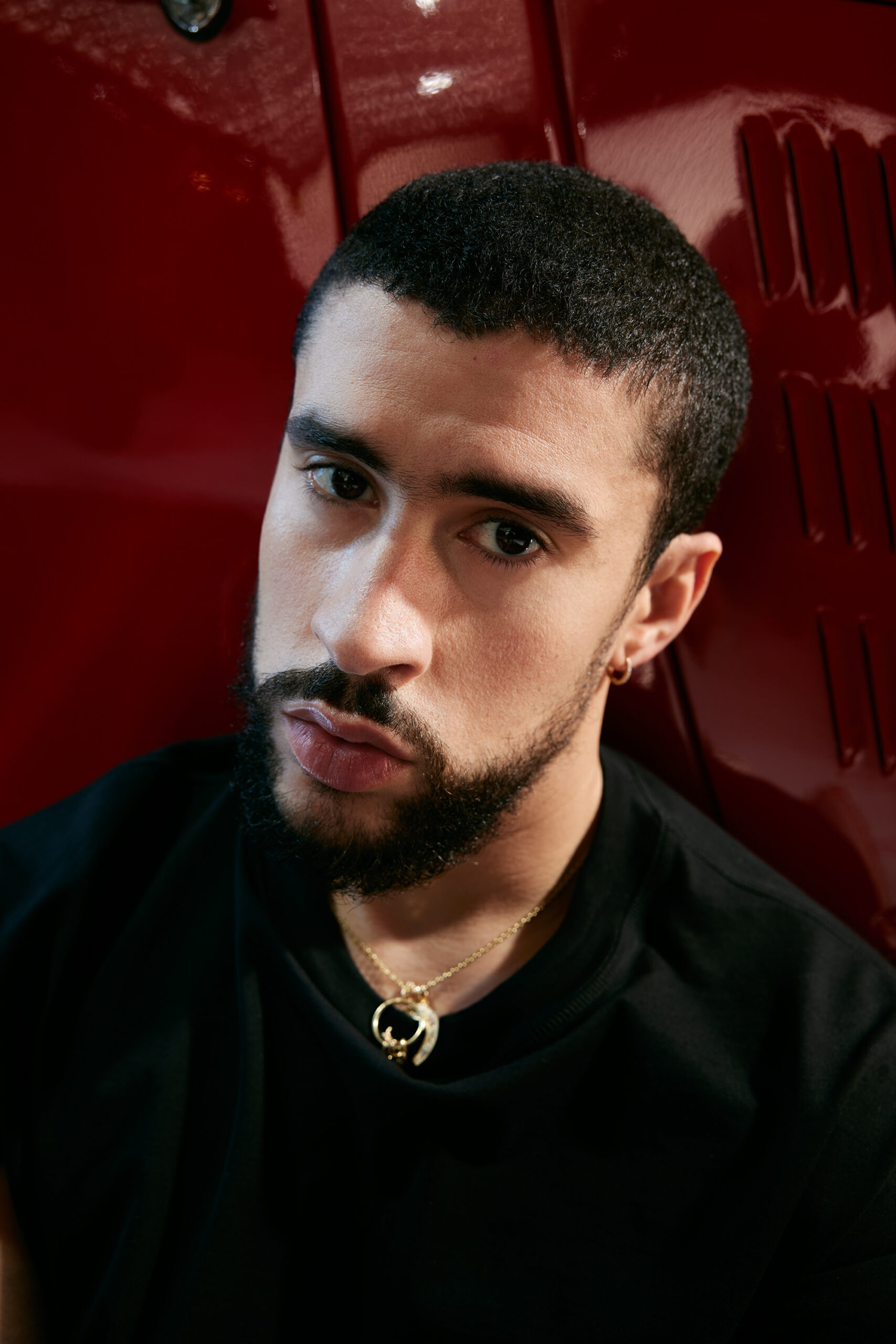
T-shirt Gucci.
BAD BUNNY: Well, look, I need to figure out when this interview comes out, but in general, I’m a big salsa fan. My dad listened to salsa, while my mom was more into merengue and ballads. As a kid, that’s what I listened to. Some of the first CDs I bought were by Marc Anthony and Victor Manuelle, because when I was a kid, they were the younger salsa artists who were popular. When I was a child, my older cousins would put on reggaeton or other genres and I’d tell them, “No! I’m a salsero!” and I’d throw down some moves. I wasn’t good at dancing to salsa, but I’d try. So as an adult, ironically, what I listen to the most on a daily basis is salsa. If you were to ask me what album I’ve been listening to during the past weeks on repeat, I’d say it’s Apollo Sound 9 by Roberto Roena y Su Apollo Sound.
DEL TORO: Man, that’s fantastic.
BAD BUNNY: I’ve been waiting for salsa to have its resurgence. There are some young salsa singers who are good and have incredible voices. I don’t know if you’re aware of what’s happening with Mexican artists who sing corridos tumbados–Peso Pluma and a new wave of youths who are taking regional Mexican music and transforming it into something modern and current. They’re taking the world by storm. Mexican music is popular again in a really cool way.
DEL TORO: Yeah.
BAD BUNNY: And I’ve been praying for something similar to happen to salsa, for someone young to turn salsa into something modern and cool, something that kids will want to listen to and not see it as, like, “Music that my dad listens to.”
DEL TORO: You always look forward and I admire you for that. And since you’re always looking forward, I’m not trying to crucify you, but I have to ask: Where do you see Puerto Rico in the next 50 years?
BAD BUNNY: Damn, that question. I’ve been interacting with new people from other places who ask me about Puerto Rico, and I always say that Puerto Rico, in terms of culture, in terms of our people, we have the potential to be whatever we want to be. I’d like to see Puerto Rico be more aware of what we’re capable of. Most of the island’s new generation is more conscientious. They want the island to improve and they want to make a change in their community. But my dream is to see Puerto Rico develop within our own community, not with foreigners–not that we can’t do business with other countries, but that us natives work together to shape the island’s future. Does that make sense?
DEL TORO: Yes, protect the culture.
BAD BUNNY: Yes. Man, I love that you’re asking me about this because yesterday I was writing a song about this. I don’t know when this interview will be out so I can’t share much about it, but if we were talking in private, I’d tell you so much because I woke up at 4 a.m. in a dreamlike state and wrote a beautiful song about this.
DEL TORO: Yesterday night while you were writing that song, I was watching the game between the Lakers and Miami Heat.
BAD BUNNY: [Laughs] Okay.
DEL TORO: The Miami shirts said “Heat Culture.” Pat Riley cultivated this culture within the Miami team with coach [Erik] Spoelstra and the players. It’s a culture of taking basketball seriously, so it’s interesting how important it is to protect culture, because, at the end of the day, it’s all we have.
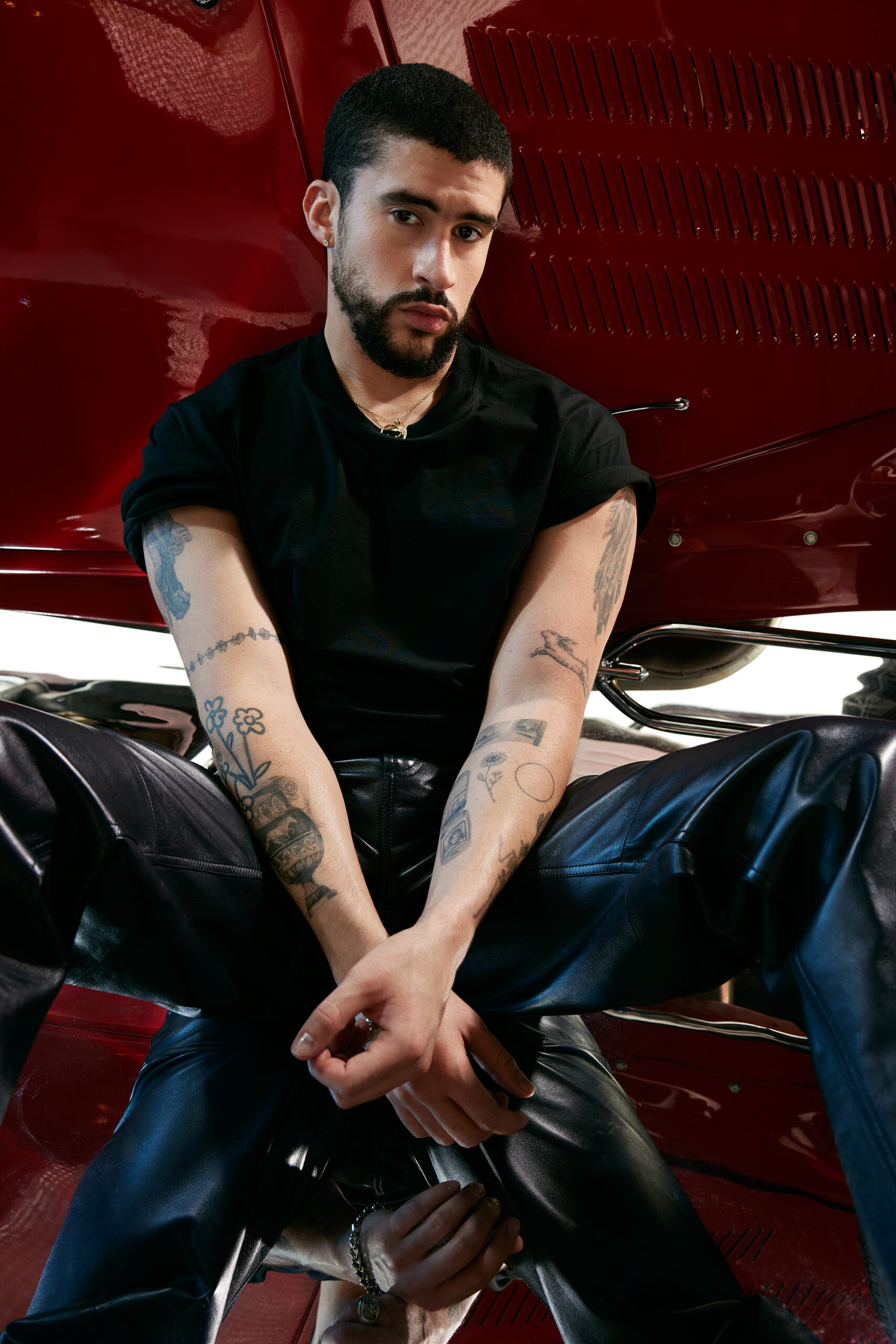
T-shirt and Pants Gucci. Bracelet Tiffany & Co.
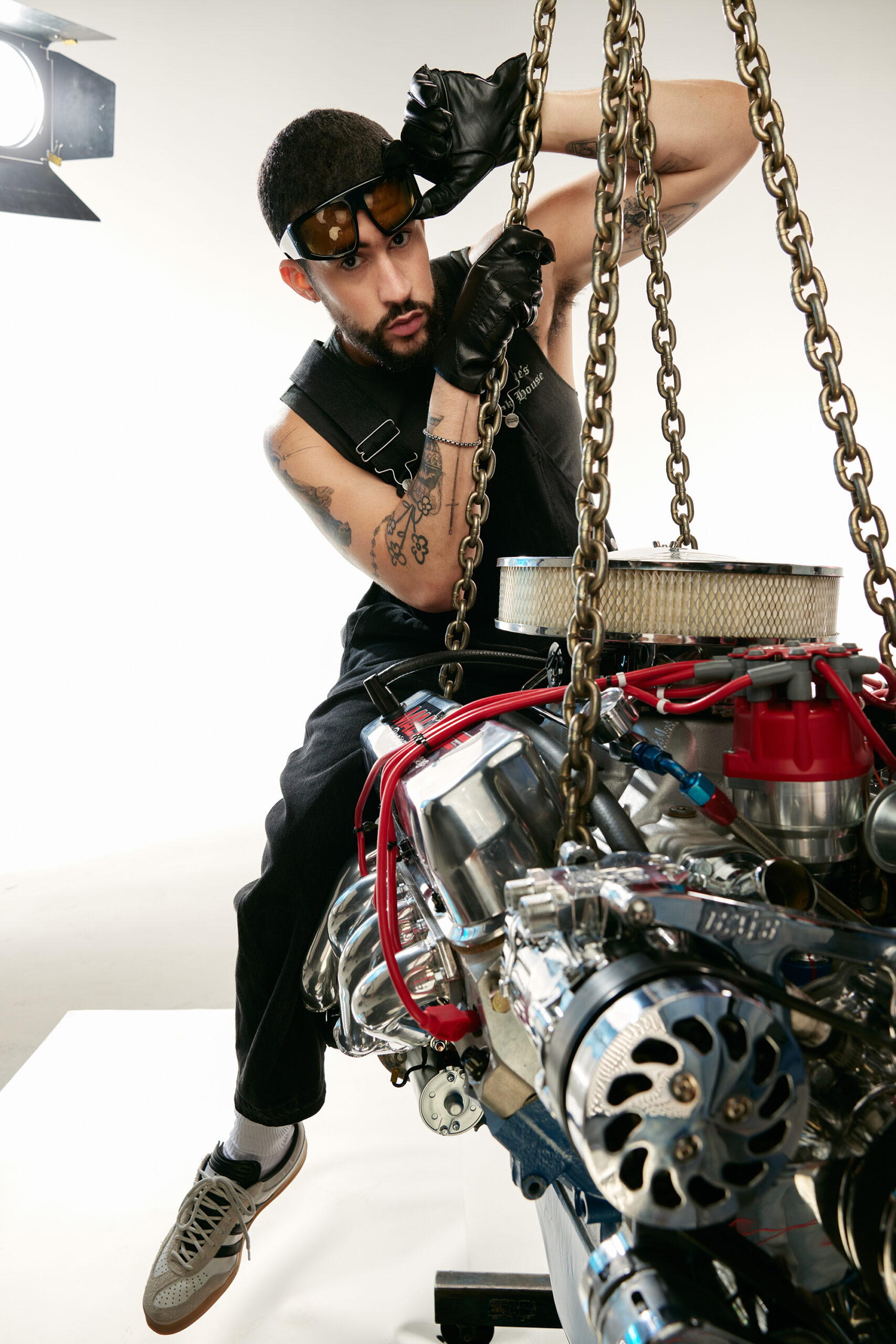
T-shirt and Overalls Coach. Sunglasses Port Tanger. Gloves Amato New York. Socks Falke. Shoes Adidas x Bad Bunny.
BAD BUNNY: I love what you just said. Puerto Rico is beautiful, but what makes it special is its culture. When people travel to the island, they’re looking for gorgeous places and beaches, but you can find that anywhere. What gives the island its enchantment is our culture.
DEL TORO: I have to give you props because when you mention Puerto Rico in interviews, you talk about up-and-coming artists from the island, but you also bring Ricky Martin out onstage, and I read that you’re doing something with Eddie Palmieri. You’re not just focusing on the new. I’m thankful for that.
BAD BUNNY: Fuck, thanks.
DEL TORO: You did it, baby. Hey, I was going to ask you another question. Who were your reggaeton idols when you started out?
BAD BUNNY: Man, I’ve been a reggaeton fan since I was a kid. I listened to every reggaeton artist who broke out during my era, from the 2000s. Tego Calderón was the first reggaeton artist that I became a big fan of as a kid. I was also a big fan of Vico C, who’s sparked controversy over whether he’s a reggaeton artist or a rapper. Anyway, whatever he is, I consider him to be a big part of my influences. Then there’s obviously Daddy Yankee, Wisin & Yandel, Héctor El Father, René [Joglar and] Calle 13. Then came Arcángel, who’s part of the second generation–or third, as I like to say. Those were my guys.
DEL TORO: And do you listen to rock or soul, or music in English? I mean, of course you do, but do you also listen to music from other countries, not necessarily in English or Spanish?
BAD BUNNY: I really listen to, as they say, a bit of everything, because I have my moods. Lately I’ve been hooked on New York-style jazz. From other countries, I don’t really have someone specific. I’m looking through my playlist to see what I have.
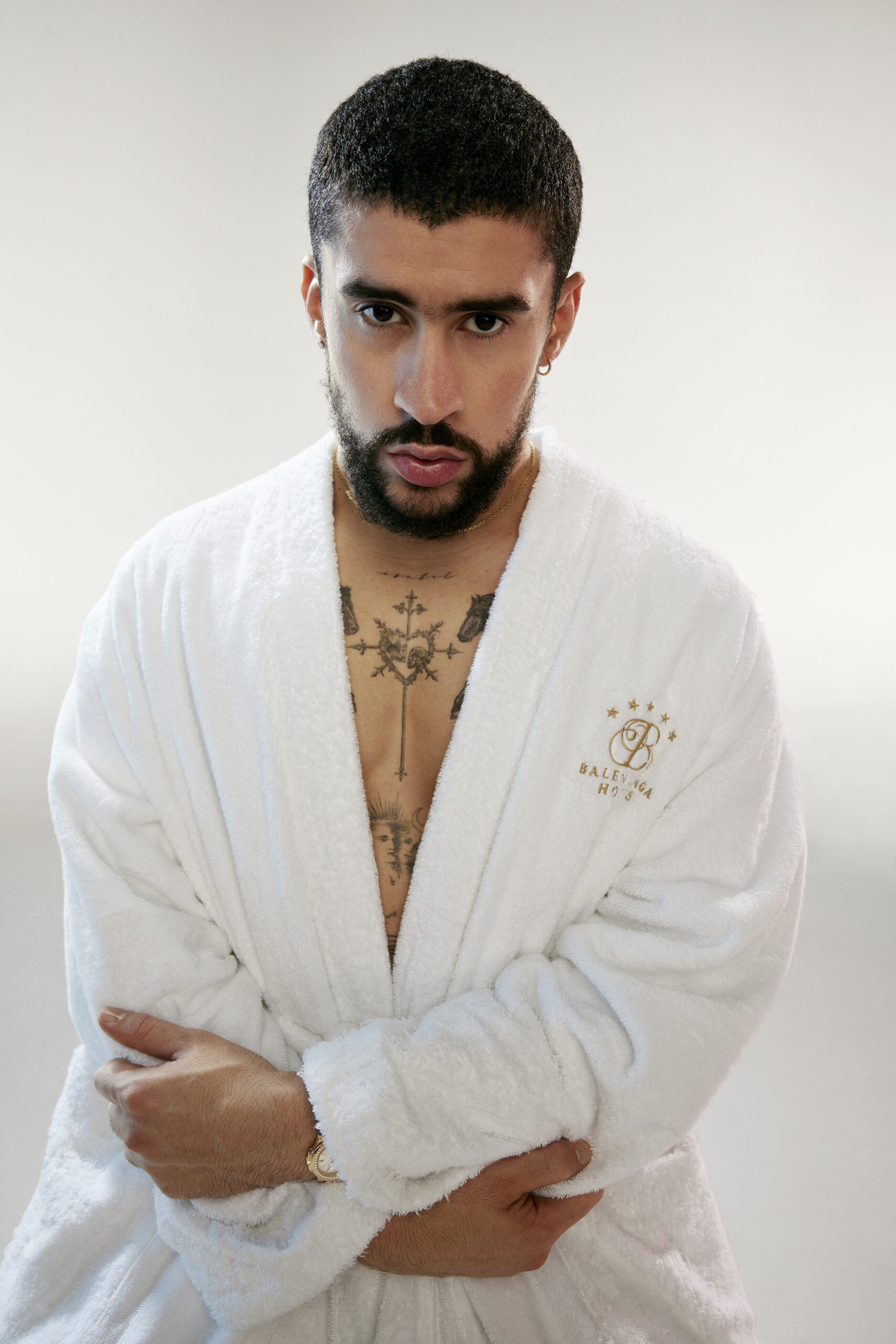
Robe Balenciaga. Watch Benito’s Own.
DEL TORO: I was listening to Charlie Parker the other day and I thought about you, like, “Maybe he listens to Charlie Parker.”
BAD BUNNY: Did he do Latin jazz?
DEL TORO: No, he–
BAD BUNNY: Oh wait, he’s–
DEL TORO: He made some jazz that had a Latin rhythm, but yeah, he was an African American from New York who did bebop. Miles Davis admired him a lot, and Dizzy Gillespie. And Dizzy Gillespie–I think, I’m not a musicologist–but I think he’s the one who introduced the congas as a main instrument to the Cuban jazz artist Chano Pozo, who also wrote his own music.
BAD BUNNY: Cuban?
DEL TORO: Yes, Cuban. We’re talking about the 1940s. After World War II.
BAD BUNNY: You’re schooling me here.
DEL TORO: No, no, no.
BAD BUNNY: No, thank you, because I like learning.
DEL TORO: With bebop, that kind of jazz they made in the ’40s after the war, that jazz is like what you guys did with reggaeton, right? It’s like a genre that comes out of nowhere, that many people find through–
BAD BUNNY: The streets.
DEL TORO: Yeah, people were scared of it.
BAD BUNNY: Because it’s music for the people. When it’s for the people, others get scared.
DEL TORO: Exactly. Well, we talked a bit about music. I have some questions they sent me. One says, if you weren’t a musician, what would you do?
BAD BUNNY: I actually dreamed so much about having this career. I’d come home from school and go straight to the computer, making beats and learning to record my own music. I’d sometimes say, “Damn, if this isn’t meant to be, I don’t know what I’ll do because I don’t have another dream.” But, obviously, I had to be a realist. I wasn’t going to go be lazy thinking that I’d get everything I wanted, so I went to college. I had my job [bagging groceries at Econo] to at least pay for gas. If I wasn’t going anywhere with my music, I was going to work in the culinary arts. I saw cooking as something creative because sure, there are recipes, but there’s also the opportunity to craft your own dishes, to create your own flavor.
DEL TORO: What do you think about the fact that non-Spanish-speaking fans don’t understand your music lyrically? Why do you think they connect to your music if they don’t know what you’re saying?
BAD BUNNY: Man, it’s like I’ve always said. Music doesn’t have a language. Obviously reggaeton with its Afro-Caribbean roots and that rhythmic pattern that makes you dance–you can’t help following it. With that throughline, I can connect with people. That’s the biggest challenge these days with music: connecting with people. There are artists who sing at an incredible level, but they can’t connect. Part of why I’ve won over fans is because I’m honest, whether it’s through songs about fucking around, or sex, or love, or about my sadness, or Puerto Rico. I don’t want to be someone I’m not, and I reflect that in how I present myself on the streets and on social media, and in my interviews. I’m not being fake. I think people, no matter what language they speak, can feel it.
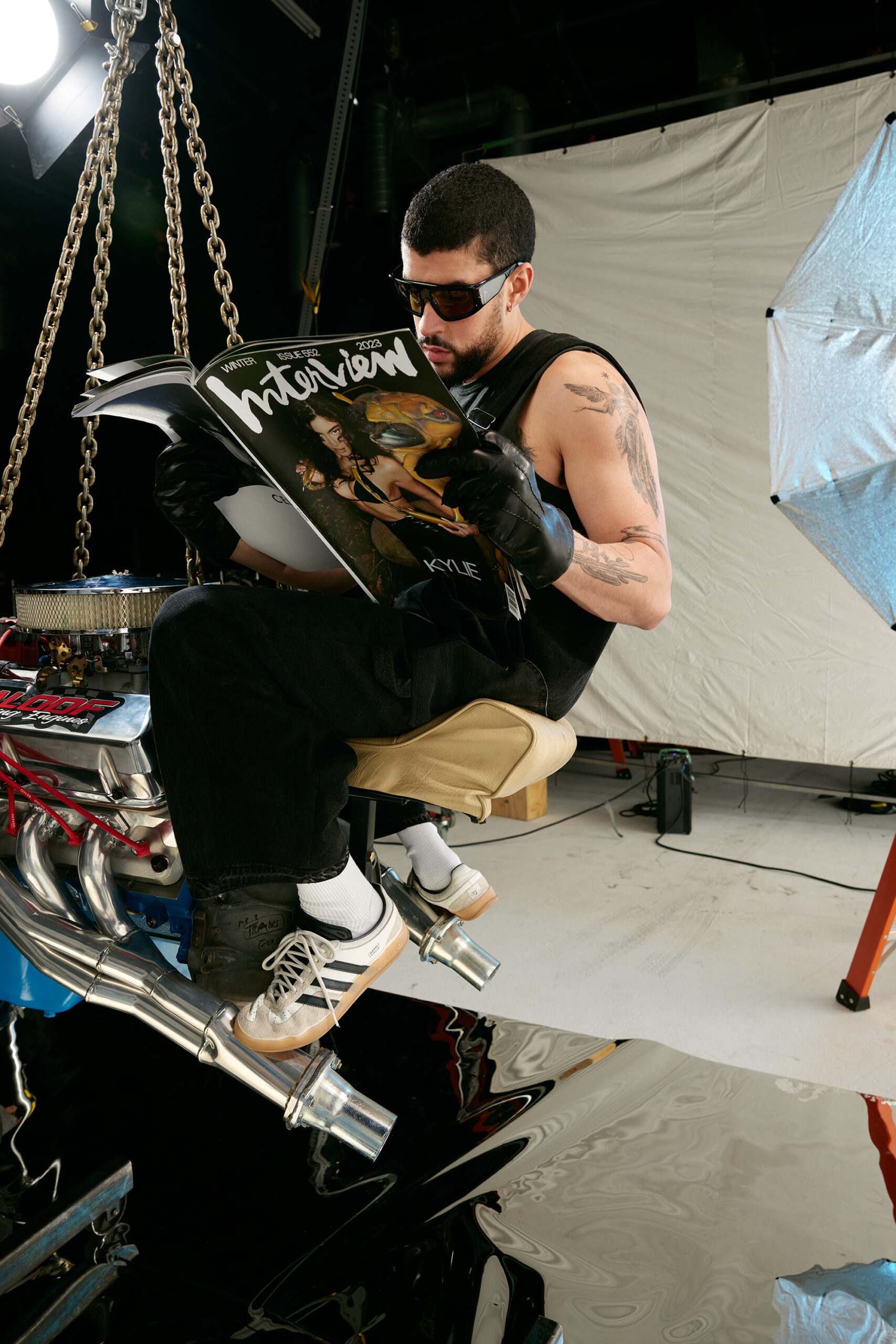
T-shirt and Overalls Coach. Sunglasses Port Tanger. Gloves Amato New York. Socks Falke. Shoes Adidas x Bad Bunny.
DEL TORO: You struck a nerve and people connected. How important are the people who knew you before you became Bad Bunny? Who are they and what do they provide for you?
BAD BUNNY: I had so many people supporting me from day one. Most of the people who work with me in my day-to-day life. my personal crew, they’re friends from high school and from childhood. My blood brothers. I’ve always been a firm believer that you can have the world, but if you don’t have someone to share it with, you don’t feel so cool. So I’m very happy to be able to share all of these experiences with them. I’m traveling around the world, doing things that I could never have imagined, and can share it with people who believed in me since the beginning, long before turning into who I am today. It means a lot that they can be part of this, that they can inspire me. No matter where in the world I am, they can make me feel at home. There’s always someone in the friend group who lives life like a movie, but in this case, we’re all grounded and that helps me keep grounded, too.
DEL TORO: I understand you, wholeheartedly. Another question I have is, you’ve been exploring acting. What does it provide to you artistically that music does not, and where are you right now in your acting career?
BAD BUNNY: At the moment, I don’t have anything in the works. I’ve been wanting to write to my team to see if there are more opportunities. I have my tour coming up, so my calendar’s a little busy, but it’s something I’d like to keep exploring. I’m in no rush to jump into a new project because I’d like to develop my skills. I don’t want to rush into a big role when I still feel like I’m not at that level yet. I want to win those roles according to my skills and work my way through the industry step by step.
DEL TORO: When you have time between music, take the risk and go for it. Someday I might come knocking on your door.
BAD BUNNY: Gosh! [Laughs] Thanks for the advice.
DEL TORO: What’s your haven?
BAD BUNNY: It’s music. It’s my family, my friends, the beach, Puerto Rico. Whenever I need to hide out, I go there and write. I write lots of songs for myself that I don’t even record or put out. In previous interviews, I’ve said that my best songs haven’t been released yet and it’s because the songs I write in that state are in the vault. People might not be interested in those songs, because it’s not what they want to listen to, so I protect that side of myself.
DEL TORO: Now that you’re in Puerto Rico, are you writing?
BAD BUNNY: Yeah.
DEL TORO: And you walk around with a pen in hand because you could get an idea at any moment, right?
BAD BUNNY: I walk around with my phone and any time an idea or melody comes to me, I write it up in the Notes app and record a voice note.
DEL TORO: Well, man, is there something left to say?
BAD BUNNY: Thank you so much for this, man, for taking time to share with me.
DEL TORO: We have to do this again, but longer. Right now I’m heading to Berlin to film a movie and I’m going to be busy because I might film two movies back to back. But after that, I have to go to Puerto Rico for a bit. I’m going to have some free time, so let’s see if we can sit and chat about ideas and whatnot.
BAD BUNNY: I’d love to. With the upcoming tour I won’t be here much but I hope to be able to come as soon as possible. I liked our conversation and it left me wanting to talk about salsa more.
DEL TORO: Yeah, we should discuss it more and also do some stories in Puerto Rico. I’ve written some stuff to film there. We can talk about that later.
BAD BUNNY: Damn, yeah.
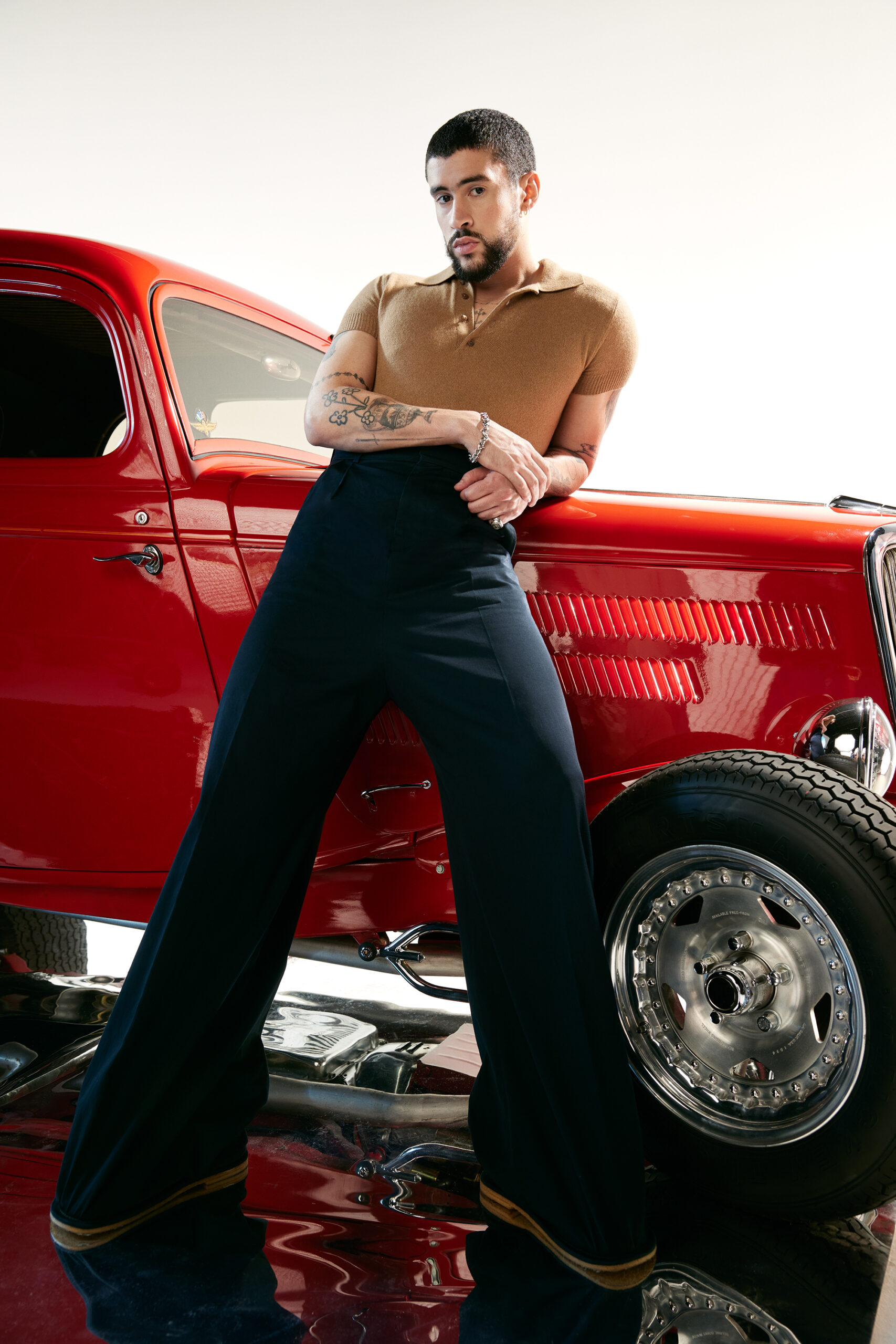
Shirt and Pants Loewe. Bracelet Tiffany & Co. Ring Maple.
———
Interview translated from Spanish by Tatiana Tenreyro.
Skin: Homa Safar using Shiseido at Day One Studio.
Nails: Yoko Sakakura using Tweezerman at A-Frame Agency.
Set Design: Robert Doran at Frank Reps.
Tailor: M’Lynn Hass.
Lighting: Tutu Lee.
Photography Assistant: Eli Lopez.
Fashion Assistant: Jaiin Kang.
Production: The Morrison Group.
Production Management: Kendoysa Pratt.
Production Assistants: Frankie Benkovic, Jordan Mack, and Jai Wilson.
Post-production: Jack Pierson Studio.
Location: Quixote Studios.
Special Thanks: Maloof Racing Engines and L’Ermitage Beverly Hills.


